Unlocking Amazon Brand Analytics for Profitable Growth.
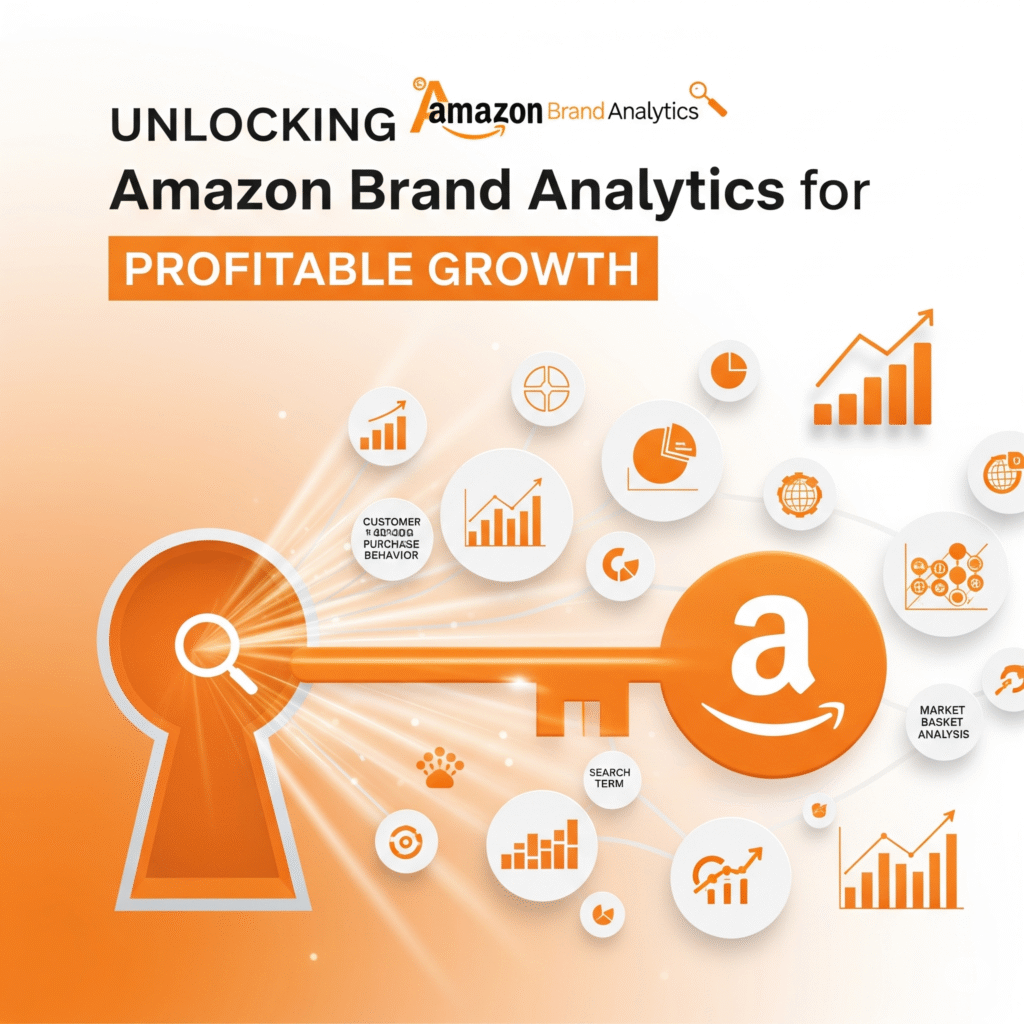
Most Amazon sellers rely on basic metrics like ACOS to guide their advertising decisions. While these are important, they only tell part of the story. Amazon Brand Analytics (ABA) offers far deeper insights, giving you access to the exact search, shopper, and competitor data you need to make smarter PPC, SEO, and product strategy decisions.
Brands that use ABA effectively often see lower wasted ad spend, stronger keyword targeting, and higher return on ad spend (ROAS). According to Amazon Seller Central data, sellers who integrate Brand Analytics into their decision-making can reduce non-converting ad spend by up to 20%.
What is Amazon Brand Analytics?
Brand Analytics is a data tool available to brand-registered sellers inside Seller Central. It offers detailed insights on customer behavior, search trends, and competitor performance that you can use to:
Refine your keyword targeting
Identify high-converting opportunities
Build more profitable product bundles
Improve retention and repeat purchases
Why Not Use ABA Hurts Your Advertising
Without Brand Analytics, your campaigns are built on assumptions rather than facts. This can lead to:
Bidding on the wrong keywords
Overlooking profitable search trends
Missing opportunities for cross-sells and upsells
Losing market share to competitors with better data
In competitive categories, relying on guesswork often results in higher CPCs, lower CTRs, and reduced profitability.
The Five Most Valuable Reports Inside Brand Analytics
Search Terms Report – Shows the top keywords, their click share, and conversion share so you know exactly where shoppers are engaging.
Market Basket Analysis – Reveals what customers frequently purchase alongside your products, giving you bundling opportunities.
Repeat Purchase Behavior – Shows which products bring customers back, enabling you to focus on high-retention items.
Demographics Report – Breaks down buyer profiles by age, income, and location for more precise targeting.
Item Comparison & Alternate Purchase Behavior – Identifies competitor ASINs that shoppers considered or chose over yours.
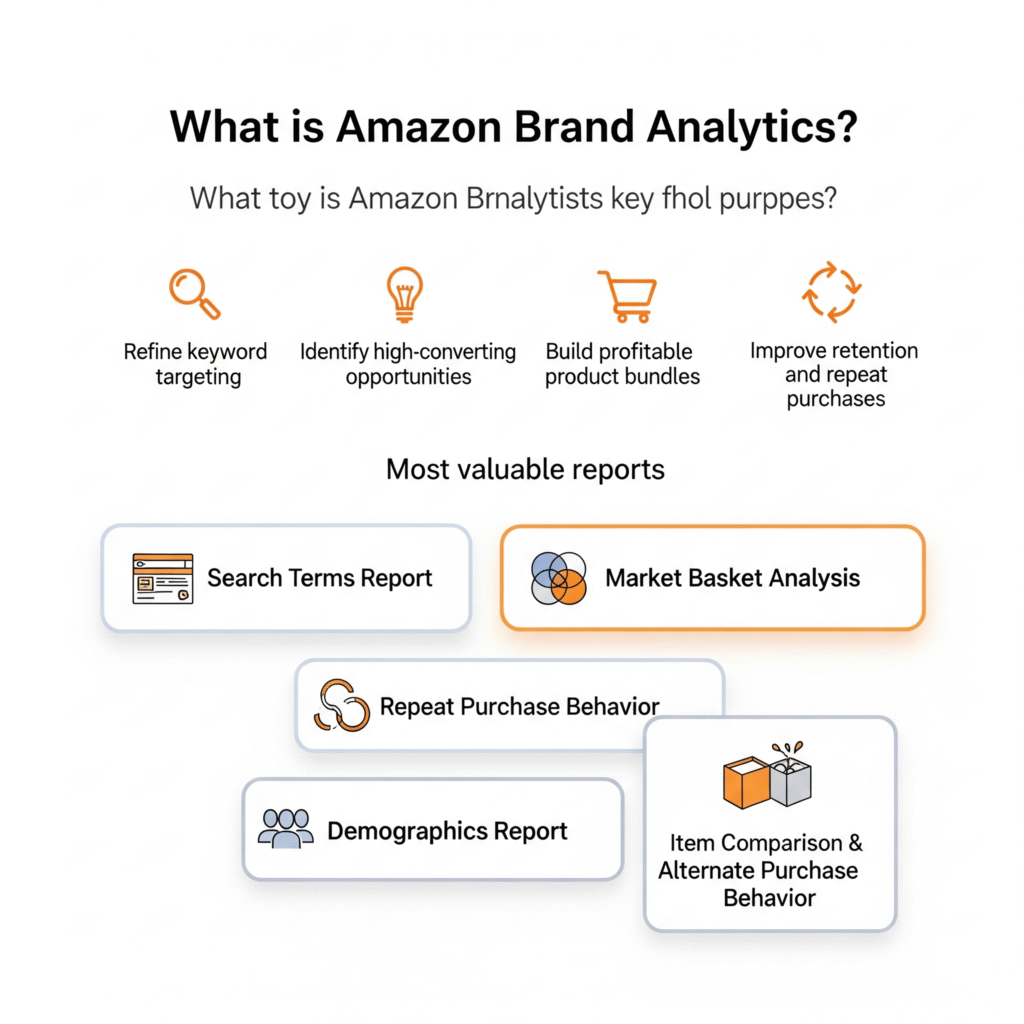
Applying ABA Insights to PPC Strategy
Here’s how top-performing sellers integrate ABA into their ad strategy:
Extract high-performing keywords from the Search Terms Report and add them to Sponsored Products and Sponsored Brands campaigns.
Use Market Basket Analysis to create strategic bundles and promote them with Sponsored Display ads.
Target competitor ASINs identified in the Item Comparison report to capture their audience.
Build campaigns that align with your audience profile from the Demographics Report.
Real-World Example
A Home & Kitchen brand was running multiple PPC campaigns with an ACOS of 28%. Using ABA, they identified keywords with high conversion share but low competition and adjusted bids accordingly. They also used Market Basket Analysis to bundle products that customers frequently bought together.
Result:
Reduced wasted spend by 22%
Increased ROAS by 18% within 45 days
Improved TACOS from 10% to 7.5%
Brand Analytics Implementation Checklist
Verify brand registry status to access ABA in Seller Central.
Download and review the five core ABA reports weekly.
Identify high-converting keywords and integrate them into PPC campaigns.
Build product bundles based on Market Basket Analysis insights.
Target competitor ASINs from the Item Comparison report.
Track performance changes after implementing ABA-driven optimizations.
Review repeat purchase trends to increase customer lifetime value.
Final Takeaway
Brand Analytics is one of the most underutilized tools in Amazon advertising, yet it offers some of the most actionable data. By consistently applying its insights, you can cut wasted spend, refine your targeting, and scale profitably.
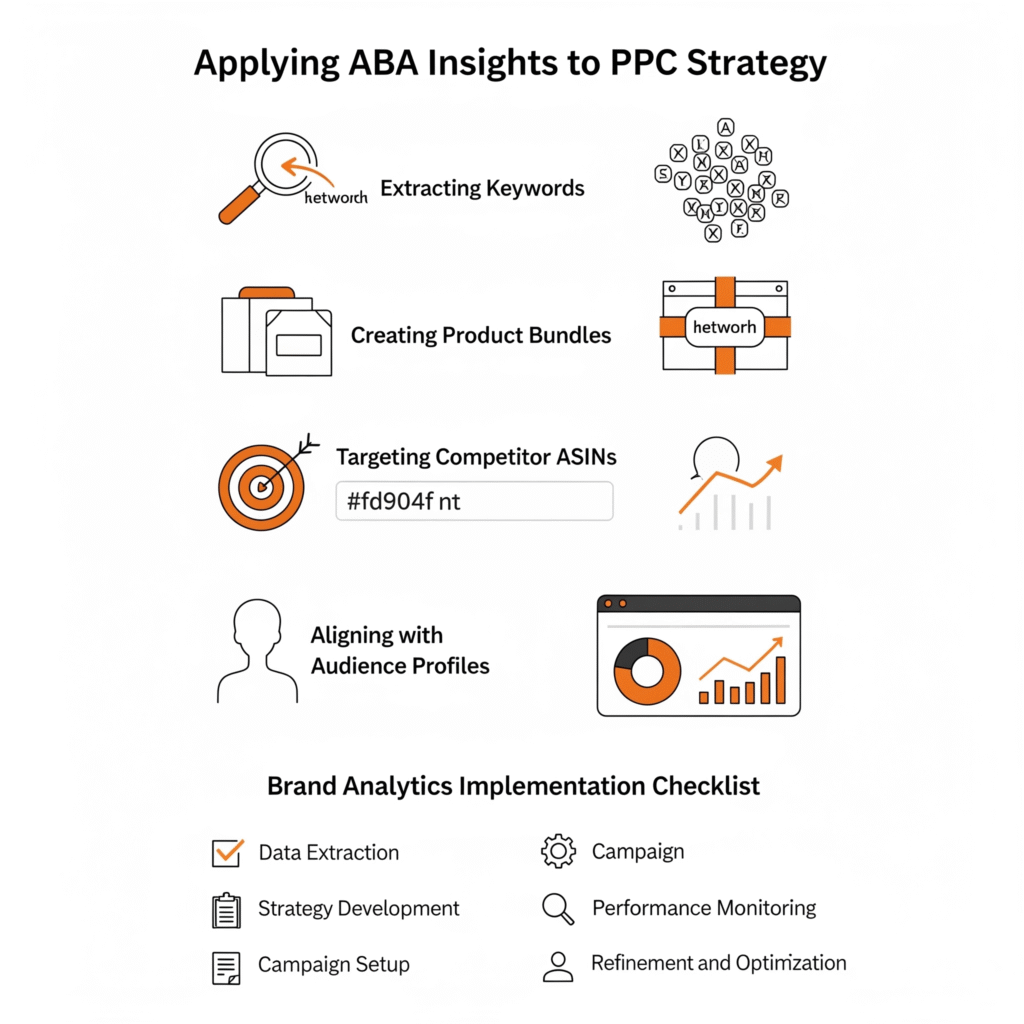
Book your free strategy call here
Let’s build a winning ad strategy tailored to your brand.


Prime Day Success Starts Before the Sale.
Prime Day Success Starts Before the Sale! Waiting for Prime Day? You’re Already Behind. The biggest wins don’t happen on
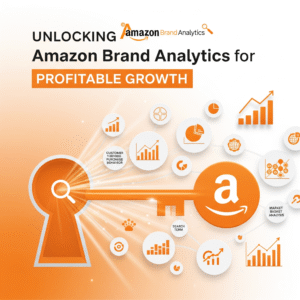
Unlocking Amazon Brand Analytics for Profitable Growth.
Unlocking Amazon Brand Analytics for Profitable Growth. Most Amazon sellers rely on basic metrics like ACOS to guide their advertising
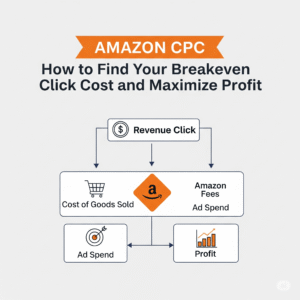
Amazon CPC: How to Find Your Breakeven Click Cost and Maximize Profit.
Amazon CPC: How to Find Your Breakeven Click Cost and Maximize Profit. When running Amazon PPC campaigns, many sellers focus

Your ACOS Looks Good… But Is It Actually Profitable?
Your ACOS Looks Good But Is It Actually Profitable? Many Amazon sellers chase a low ACOS (Advertising Cost of Sale),

Know Your Breakeven CPA Or Risk Scaling into Losses
Know Your Breakeven CPA Or Risk Scaling into Losses Many Amazon sellers obsess over CPC, CTR, and even ACOS, but
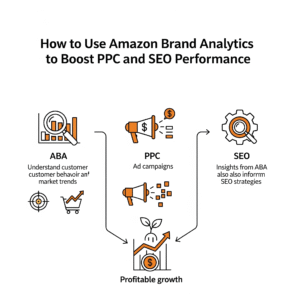
How to Use Amazon Brand Analytics to Boost PPC and SEO Performance.
How to Use Amazon Brand Analytics to Boost PPC and SEO Performance. Amazon is one of the most data-rich marketplaces




